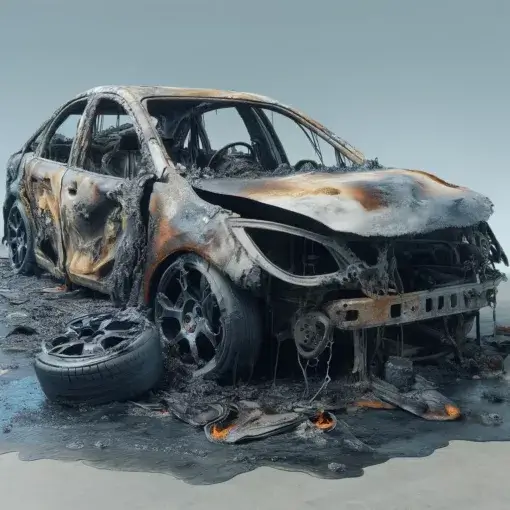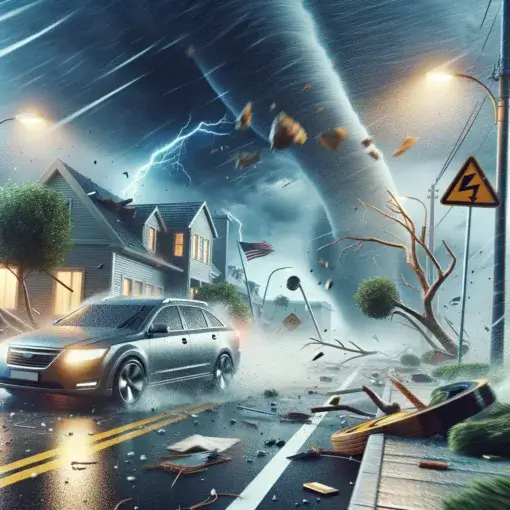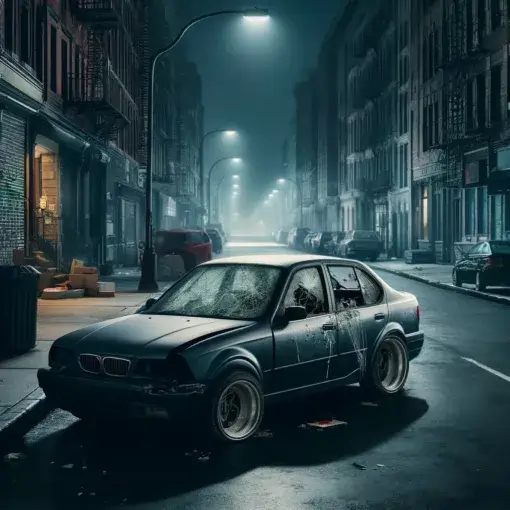What does Comprehensive car insurance cover?
Extra layer of protection against damage that is beyond your control.
// AUSTIN AUTO PROTECTION
What does comprehensive car insurance cover?
Comprehensive car insurance, an additional coverage, provides you with the flexibility to pay for repairs or replacement of your vehicle caused by non-collision events. These can include storms, floods, fires, vandalism, hitting an animal, falling trees, or theft. It’s an extra layer of protection against damage that is beyond your control. If your vehicle is paid off, comprehensive insurance is generally optional. However, suppose you are financing or leasing your car. In that case, your lender may require that you have comprehensive coverage, giving you the power to choose.

Standard coverage for when you’re at fault
What does comprehensive insurance cover?
Comprehensive insurance covers damage to your vehicle caused by:
- Hail
- Wind
- Fire or explosions
- Vandalism
- Civil disobedience, like a riot
- Theft and associated damage
- Collisions with animals, like a deer
- Falling objects, such as rocks or tree limbs
- Natural disasters such as floods, hurricanes, tornadoes, lightning, and earthquakes
Comprehensive Insurance Does not Cover
Comprehensive car insurance provides coverage for damages caused by incidents that are not collision-related. However, it’s important to note that comprehensive insurance does not cover damages caused by collisions with other vehicles or objects (excluding animals). It also doesn’t cover damages to another person’s car resulting from a collision, medical expenses, including injuries to yourself, passengers, or those in other vehicles, or any average wear-and-tear costs, such as replacing worn tires, windshield wipers, or mechanical issues.
Does comprehensive car insurance cover glass or windshield replacement?
Keep in mind that the extent of glass and windshield coverage, including deductibles that may apply, varies across insurers and states.
Typical glass and windshield coverage examples include:
- An act of vandalism
- A tree branch falls on your windshield and damages it
- A baseball hits and cracks your car’s windshield or glass
- While driving, a pebble hits your windshield and causes a crack, bullseye, or star break
- An animal crashes into your vehicle and damages the glass or windshield
Customized coverage that protects your vehicle from unexpected
Who is Comprehensive coverage right for?
- Those looking for maximum coverage on their car.
- If you lease or finance your vehicle, you may be required to purchase this coverage.

What are the benefits of Comprehensive coverage?
- You’ll avoid out-of-pocket costs if your car is damaged after you’ve met your deductible.
- Compensation if your vehicle is totaled.

What’s the difference between comprehensive and collision insurance?
Both comprehensive coverage and collision coverage help protect your car against losses and damages by covering the costs of vehicle repairs. Both coverages also have a deductible that must be met before repairs can be made.
The main difference is that comprehensive coverage pays for losses and damages to your car due to things other than accidents or collisions. In contrast, collision insurance covers damages due to a crash while on the road.
Situations where comprehensive insurance applies include:
- You hit an animal that results in damage to your car
- Your car is stolen
- Your vehicle is damaged in a hailstorm
Situations where collision insurance applies include:
- Another vehicle hits your car
- You swerve to miss an animal and hit a fence
- Your car slides on ice and strikes a guardrail
- Someone causes damage to your vehicle while it’s parked and then drives off
Are comprehensive insurance and full coverage insurance the same thing?
No. In fact, ‘full coverage auto insurance‘ is not an actual policy but an industry term for an auto insurance package that typically includes a combination of liability, collision, and comprehensive insurance, as well as any other coverages your state may require. This term is often used to describe a policy that provides a high level of protection for your vehicle, but it’s important to understand the specific coverages included in your policy.
It’s not uncommon for a complete coverage auto insurance package to be described as having the ability to insure your car no matter what happens to it. But remember, no insurance policy can guarantee 100% coverage for every situation.


Should I get comprehensive insurance?
It depends. If you finance or lease your car, your lender will typically require you to carry comprehensive insurance. Once your vehicle is paid off, comprehensive car insurance is usually optional.
However, you need to consider what you would do if a tree fell on your car or if it was stolen. Without comprehensive insurance, could you afford to replace your vehicle or pay for an expensive repair bill? If the answer is no, you should consider comprehensive insurance. It’s a financial safety net that can provide you with a sense of relief in such situations.
// faq
Common questions about car insurance
What is car insurance?
First, let me start with the basics—an individual must purchase liability insurance for their vehicle (and thus its owner) to be considered “insured” under state law. This rule applies across all circumstances- even if no accidents take place!
This protection exists so others may not suffer financially due to injuries sustained during a collision. We also offer Collision insurance if your vehicle needs repairs after an accident and comprehensive coverage if your car is vandalized.
How can I save money on car insurance?
The first way to save on car insurance quotes is by ensuring that your vehicle meets the minimum safety standards.
This will also help avoid costly repairs in case of an accident, leading you into a higher premium rate category due to being risky drivers!
You should consider reviewing any existing coverage aspects as well if they’re not up-to-par with current market rates – this includes both physical damage protection beyond merely bumper-, windshield-, comprehensive and collision-.
How do I file a car insurance claim with Risk Coverage?
Like many of our policyholders, the company that provides you with car insurance can be a life-saver, and we’re here to help. Log onto Risk Coverage’s website or call us if your car needs immediate attention, so we’ll ensure it gets the best care possible!
Should I get an umbrella policy too?
If you’re involved in an auto collision, and the other person’s fault is unclear, it may be time to consider getting extra protection.
Umbrella policies offer increased financial compensation for injuries, damage done on behalf of a covered individual that results from accidents occurring outside their control (such as driving into traffic), plus legal fees that will arise.
What are auto insurance coverages available?
Insurance for auto policies varies by state, but the basics of an auto policy include multiple coverages.
Some common types are liability (to protect against physical injury), comprehensive (for damage), and collision(to assist with reporting accidents).
You might also need medical payments or personal effects coverage if you rent cars regularly due to various restrictions in some states – these will depend entirely upon your specific situation!
Does car insurance cover rental cars?
Your car insurance may provide coverage for rental cars. To find out, call Risk Coverage to see if your current auto insurance policy covers rental vehicles.
Risk coverage will never let you walk away without vehicle rental. If you have full range, why? Because in certain situations, for $2 a month, you can be covered if you get in an accident and need a vehicle to continue getting around.
There are some benefits of having Credit cards since some provide discounts for renting a car. Some credit cards offer additional coverage but make sure you understand the terms and conditions, including any limitations on the type and amount of coverage.
What do I need to get an auto insurance quote?
To get the most accurate quote on new policies, you need to supply your car’s make, model, year, and information about your driving history. You’ll need your vehicle identification number (VIN) handy to purchase an auto policy. We’ll also ask for your driver’s license number.
Not sure which coverages to select? Our car insurance calculator can help you estimate your coverage needs. Ready to get started? Get a quick car insurance quote online or call us.
